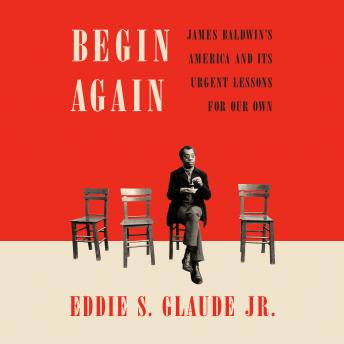

Where a number of writers have paid ample tribute to Baldwin’s essays from the late ’50s and early ’60s, during the early years of the civil rights movement, Glaude finds energy and even solace in the later nonfiction that charted Baldwin’s disillusionment. It’s a blunt-force thesis statement that made me wonder if Glaude, who has long written about the devastation wreaked by American racism with insight and candor, might be selling himself short: Does he really need Baldwin to help him understand Trumpism, a movement whose bigotry seems less “insidious” than brazen?īut I soon realized that Glaude is up to something bigger than his own summary allowed.

Glaude is more explicit about looking to Baldwin not just for perspective and inspiration but for instruction and guidance: Combining elements of biography, criticism and memoir, “Begin Again” “aims to think with Baldwin and to interrogate how an insidious view of race, in the form of Trumpism, continues to frustrate any effort to ‘achieve our country.’” “I was wrong, and given my lifelong reading of Baldwin, it was an egregious mistake.” “White America would never elect such a person to the highest office in the land,” he writes in his new book, “Begin Again: James Baldwin’s America and Its Urgent Lessons for Our Own,” recalling what he told himself in 2016.


For Glaude, a Trump presidency was completely unfathomable until it actually happened. This, mind you, preceded Donald Trump plowing through the primaries to become the Republican nominee. Under the watch of the first black president, Glaude wrote, “black people have suffered tremendously.” A Democratic machine that took black voters for granted had convinced Glaude that the only way forward would be an “electoral blank-out.” He called on black Americans to turn out in record numbers again in November 2016 and cast a vote for “none of the above.” Glaude Jr., a professor of African-American Studies at Princeton, had just published “Democracy in Black,” his blistering indictment of the Obama era. It’s hard enough to think back four months, much less four years, but try to recall the early weeks of 2016 - another time, another planet.Įddie S.


 0 kommentar(er)
0 kommentar(er)
